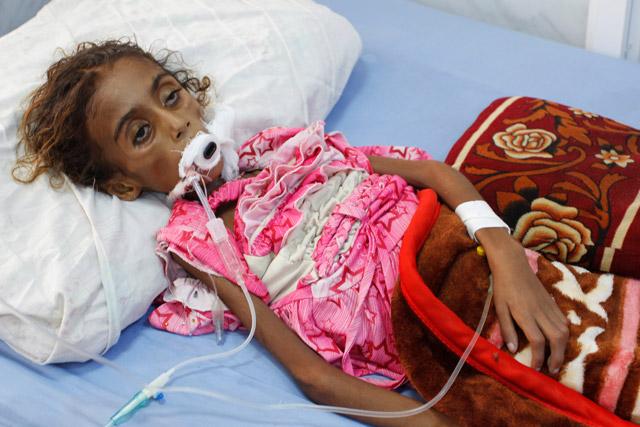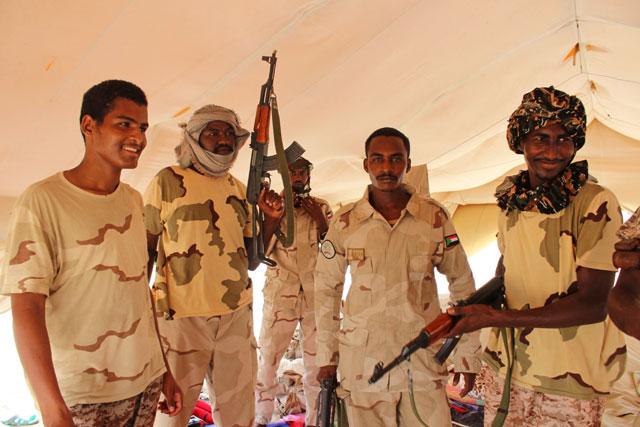You are here
Victim of Yemen's war: the death of Jamila, aged 7
By Reuters - May 03,2017 - Last updated at May 03,2017

Malnourished girl Jamila Ali Abdu, 7, lies on a hospital bed before she died in the Red Sea port city of Hodeidah, Yemen, on Tuesday (Reuters photo)
HODEIDAH, Yemen — Eyes half open and sunken deep into their sockets, little Jamila Ali Abdu already looked half dead for most of her 12-day stay at the malnutrition ward of Yemen's Hodeidah hospital.
Too weak to resist the march of disease and hunger in her war-battered country, the seven-year-old's tiny frame was swathed in a childishly bright green shroud and lowered by sobbing relatives into a dusty grave on Tuesday.
Two years of war have plunged what was already the Arab world's poorest country into a deep humanitarian crisis.
Public finances for healthcare are in disarray, while roads and bridges for transporting basic goods are bombed-out ruins.
Jamila suffered from worms which doctors in her remote village home were unable to treat, and her family could not afford to transfer her for specialist care in the capital Sanaa.
"Her condition has been deteriorating for the past two years... Every time we went to a hospital they told us she has worms and bacteria. We couldn't get anywhere and we are poor people and can't go to Sanaa or anywhere else," lamented her father Ali just before her death.
Even before the war, villagers on the baking plains, clumped with gnarly palms, on Yemen's Red Sea coast were already struggling to get clean water, feed themselves and obtain medicine.
The United Nations warns that a child under five in Yemen dies around every 10 minutes from preventable causes such as starvation, disease, poor sanitation or lack of medical care.
UN chief Antonio Guterres warned last week of "the starving and the crippling of an entire generation".
Nearly 17 million of Yemen's 28 million people are deemed "food insecure" by aid groups, and around 7 million do not know where they will get their next meal.
After a visit to Yemen, head of the Norwegian Refugee Council Jan Egeland condemned the warring parties and foreign powers for failing to end what he called a "preventable catastrophe [that] is man-made from A to Z".
"This is a gigantic failure of international diplomacy. Men with guns and power inside Yemen as well as in regional and international capitals are undermining every effort to avert an entirely preventable famine, as well as the collapse of health and education services for millions of children," he said.
Related Articles
ADEN, Yemen — The UN Yemen mediator is in talks with the Houthi movement to hand over control of Hodeidah Port to the United Nations in an a
DUBAI — Oman is mediating between Yemeni President Abed Rabbo Mansour Hadi's government and its Houthi opponents over a UN plan to resume pe
DUBAI — A top official in Yemen's armed Houthi movement said on Monday the United Nations Special Envoy for Yemen was banned from returning













